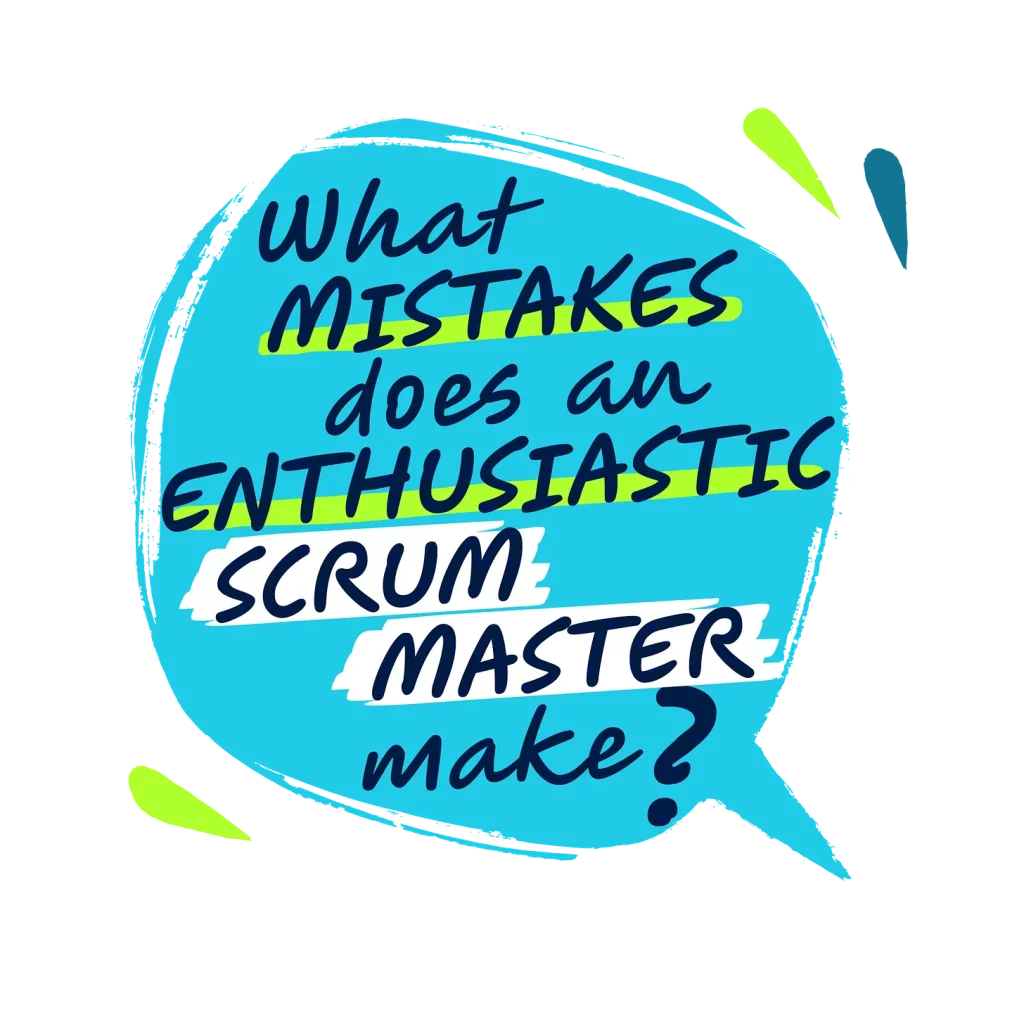Enthusiastic Scrum Masters can be over-involved with and micro-manage teams. Instead, they must find what’s best for the team and focus on enablement, allowing self-management to flourish.
Scrum Masters often face unique challenges when navigating the complexities of product development collaboration and organisation processes and policies. Their role is vital in steering products and teams’ success, requiring a delicate balance of guidance and flexibility.
However, even the most enthusiastic and well-intentioned Scrum Masters can encounter pitfalls. Recognising and addressing these common behaviours listed below can lead to more harmonious and effective team dynamics.
1. Overemphasis on Tools:
It is possible for a Scrum Master who is very passionate about their job to place too much emphasis on the tools and processes involved, treating them as a universal solution that can be applied to all situations.
However, this approach can result in strict adherence to methods without considering the unique requirements and dynamics of the team. It is crucial to tailor processes to suit the team’s specific context. This promotes adaptability and flexibility, which are both essential for success.
2. Neglecting Team Dynamics:
In the quest to increase efficiency, a Scrum Master may forget to consider the significance of the team’s context and interpersonal relationships. Creating a unified team culture and promoting open communication, mutual respect, and understanding can help cultivate a constructive and productive work environment.
3. Insufficient Feedback Loops:
Eager to keep things moving, they might rush through or skip retrospectives and feedback sessions. Regular, constructive feedback is vital to continuous improvement. Creating a safe space for open dialogue where team members feel valued and heard is essential.
4. Ignoring Individual Growth:
Focusing solely on outcomes may result in overlooking the growth and development of individual team members. Acknowledging and cultivating each person’s skills and career aspirations is crucial to maintaining motivation and job satisfaction.
5. Inadequate Stakeholder Engagement:
The focus on the team sometimes leads to insufficient engagement with stakeholders. Balancing internal team needs with external expectations is critical. Regular, transparent communication with stakeholders ensures alignment and fosters trust.
While enthusiasm in a Scrum Master is invaluable, it must be carefully tempered with mindfulness and adaptability.
Ultimately, the goal is to cultivate an environment where the team can thrive, grow, and innovate while maintaining a healthy balance between organisational process adherence and creative freedom.


